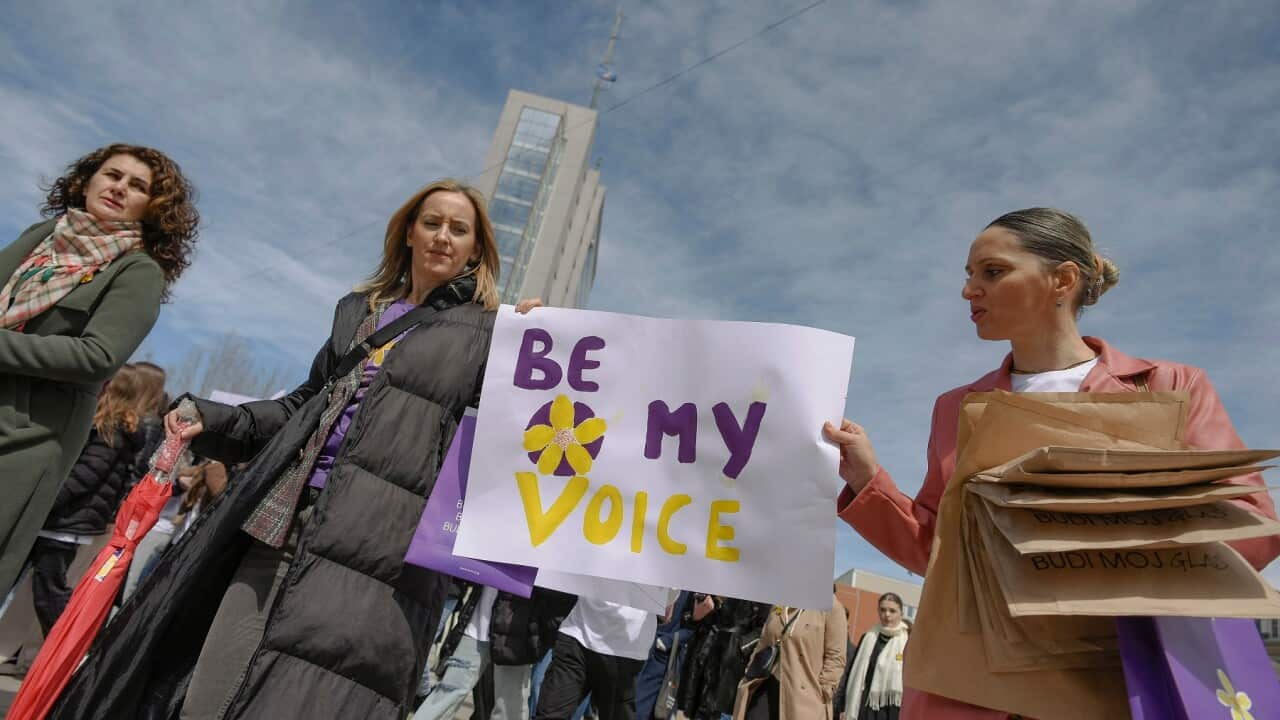TRANSCRIPT:
It's been 25 years since the end of the war in Kosovo.
The country's Ambassador to Australia, Jetmira Berdynaj Shala, says it was a hard fought conflict, only ending after a NATO military intervention that forced Serbia to withdraw its forces.
"There have been around 12,000 victims. Out of them, more than 9,000 were civilians, meaning women, elder people, children, that were not part of the army."
Tensions still remain between Kosovo and Serbia.
The British foreign ministry sent 200 soldiers to NATO's peacekeeping force in Kosovo following a gun battle between the authorities and armed Serbs in the country's north in September.
Kosovo's Prime Minister Albin Kurti says they appreciate the help.
"Ally, partner, friend before liberation, during and after, and we never forget the help that we’ve gotten bilaterally from UK or through NATO and EU."
But there are also other constant reminders of the war.
During the 1998 conflict, there were around 20,000 reported instances of rape and sexual assault by members of the Serbian army against the local population, with women overwhelmingly the targets of that violence.
Atifete Jahjaga is a former president of Kosovo.
She says in the years since, survivors have experienced stigma.
"While each and every one of us has enjoyed the freedom and the liberties immediately after the end of the war, survivors of the sexual violence, to our shame, we have covered them with a veil of shame instead of covering them with a veil of pride. Because while we have been fighting in many of the battlefields, we have never recognised that these survivors from a different age, which we have here, the dress of a 17 years old young lady, she's not among us, where her and her sister of ten years old due to the consequences of their rape. They are not among us anymore."
Now, a new museum has opened in the capital Pristina, dedicated to those victims.
The initiative was largely funded by the Atifete Foundation, created and owned by the former president.
"And this is a way that we are trying to show our support as the people of Kosovo, as institutions of Kosovo, as the civil society of Kosovo, in a way to remind each and everyone who comes in within this facility and being able to see and to expose, starting from the artefacts and all the way down to the statements that are around this room that each and every room has its story on itself will be, in a way, dealing with the collective memory in order to restore the record of collective memory about the sacrifices that the women and men of Kosovo have done."
Ms Jahjaga says the museum is a world first.
"If I am not wrong, not only in the region but in the world, is in itself as a museum for the survivors of the sexual violence. Usually there are kind of museums as a part of the museums of the genocide, museums of the war or museums of the peace. But on itself Kosovo is the first country that has established a museum for the survivors of the sexual violence."
For Ambassador Shala, the museum represents an opportunity to remember and celebrate the courage of sexual assault survivors who are using their own experiences to build a better tomorrow.
"This is one of the open wounds of (the) Kosovo War. It's still open and the survivors are there. It's not easy to talk about this topic. It's a big number (of victims) and they are there but the good thing is that they are turning this difficult moment of their lives into power. They are reflecting how strong a society can be when they are on the right side of anything. So they were victims and now they are the strength of our society."













